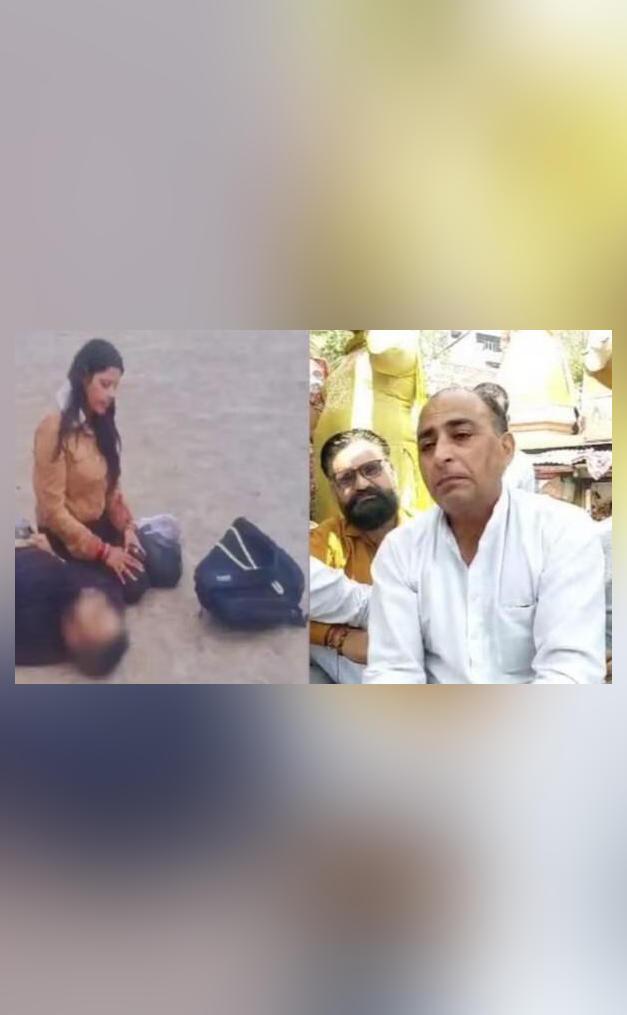
Asim Munir will know my pain if his son is killed: Father of Navy officer killed in J&K
The recent terror attack in Pahalgam, Jammu and Kashmir, has left the country in shock and grief. The attack claimed the lives of several bravehearts, including a young Navy officer, Lieutenant Vinay Narwal. His father, Rajesh Narwal, is still reeling from the news and is struggling to come to terms with the loss of his son.
In an emotional and heartfelt interview, Rajesh Narwal spoke about the trauma his family is going through and how he and his loved ones are struggling to cope with the loss. “We are still in a state of shock,” he said. “We are still trying to come to terms with what has happened. It’s been a few days, but it feels like an eternity since we last saw Vinay.”
Rajesh Narwal’s pain is palpable as he talks about his son’s death. He remembers the day his son left for duty, full of hope and enthusiasm, and how his family had been looking forward to his return. “Vinay was a bright and ambitious young man,” he said. “He had a lot of plans and dreams. He was full of life and energy. And now, he’s gone.”
The grief and trauma that Rajesh Narwal and his family are experiencing is not unique to them. Many families across the country have lost loved ones in terror attacks and other tragedies. However, Rajesh Narwal’s words are particularly poignant because they are directed at Pakistan’s new army chief, General Asim Munir.
Rajesh Narwal has called out General Munir, saying that if his own son or daughter were to be killed in a terror attack, he would understand the pain that he and his family are going through. “He’ll understand my pain the day his son or daughter will be killed similarly,” he said. “If I were given a gun to shoot his son or daughter, then he’d know the pain.”
Rajesh Narwal’s words are a powerful indictment of the senseless violence and terrorism that has plagued our country for far too long. They are a reminder that terrorism is not just a political or ideological issue, but a deeply personal and human one.
Terrorism is a crime that affects not just individuals or communities, but entire societies. It is a crime that leaves a trail of destruction and devastation in its wake, tearing apart families and communities. It is a crime that is perpetrated by people who have no regard for human life or dignity.
Rajesh Narwal’s pain is a reminder that terrorism is not just a distant concept, but a harsh reality that affects us all. It is a reminder that we must all stand together against terrorism, and that we must all work together to create a world that is free from violence and fear.
In the wake of the Pahalgam terror attack, many questions have been raised about the security situation in Jammu and Kashmir. There have been calls for increased security measures to prevent such attacks from happening in the future.
However, Rajesh Narwal’s words are a reminder that security measures alone are not enough to prevent terrorism. We must also address the underlying causes of terrorism, including poverty, unemployment, and inequality.
We must also work to build bridges between different communities and to promote understanding and tolerance. We must also work to address the root causes of terrorism, including the spread of hate speech and the glorification of violence.
Rajesh Narwal’s pain is a reminder that terrorism is a complex and multifaceted issue that requires a comprehensive and nuanced approach. It is a reminder that we must all work together to create a world that is free from violence and fear.
In conclusion, Rajesh Narwal’s words are a powerful reminder of the human cost of terrorism. They are a reminder that terrorism is not just a political or ideological issue, but a deeply personal and human one. They are a reminder that we must all stand together against terrorism, and that we must all work together to create a world that is free from violence and fear.
Asim Munir will indeed know the pain of losing a loved one in a terror attack if his son is killed in a similar manner. But it is not just about General Munir or any individual. It is about each and every one of us, and the pain that terrorism inflicts on our families, our communities, and our society as a whole.



